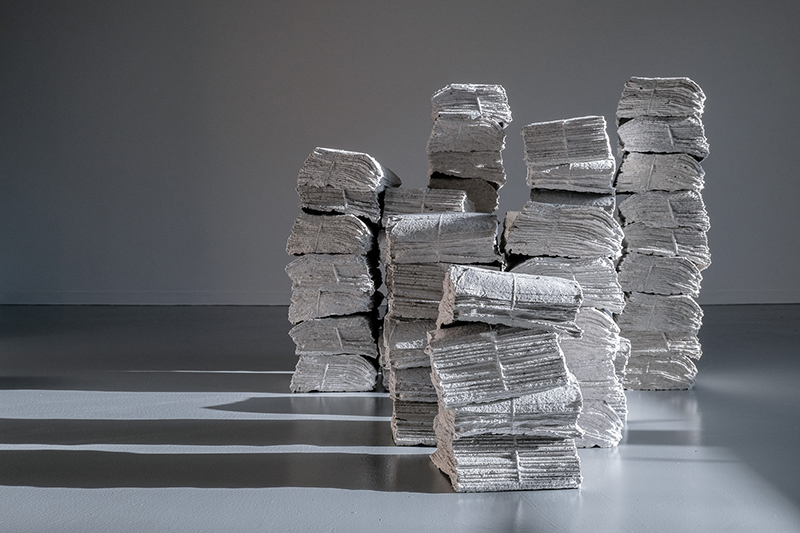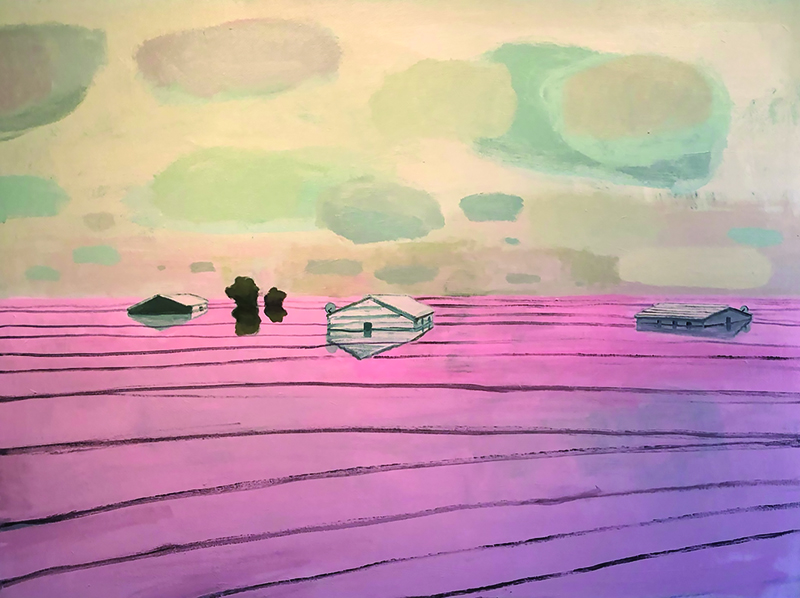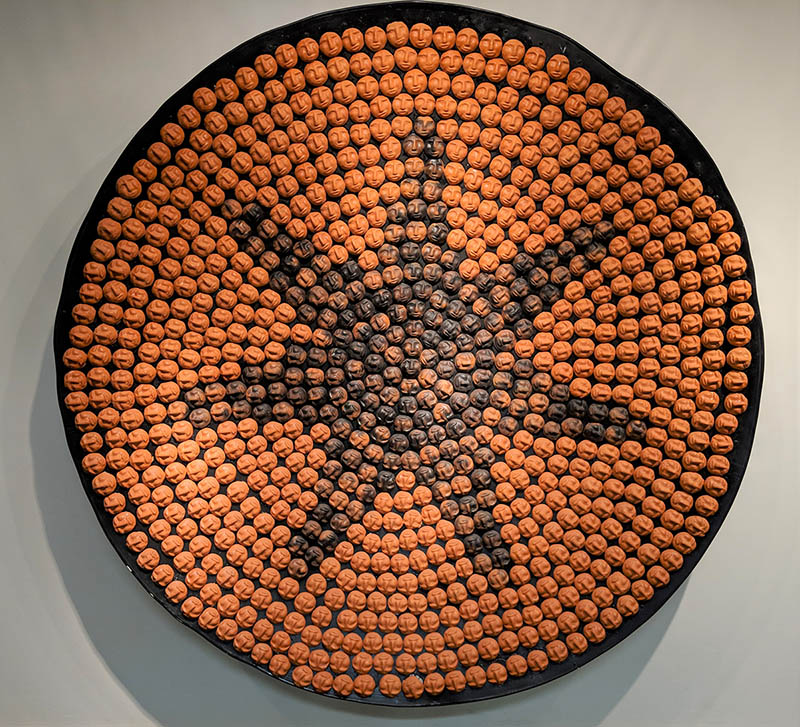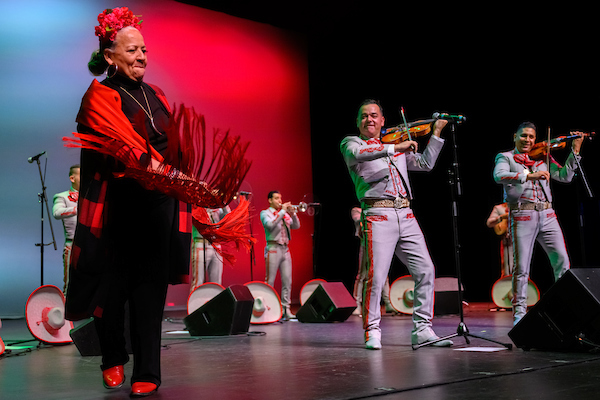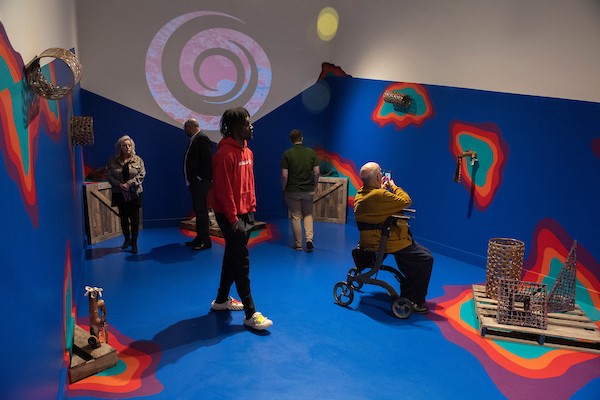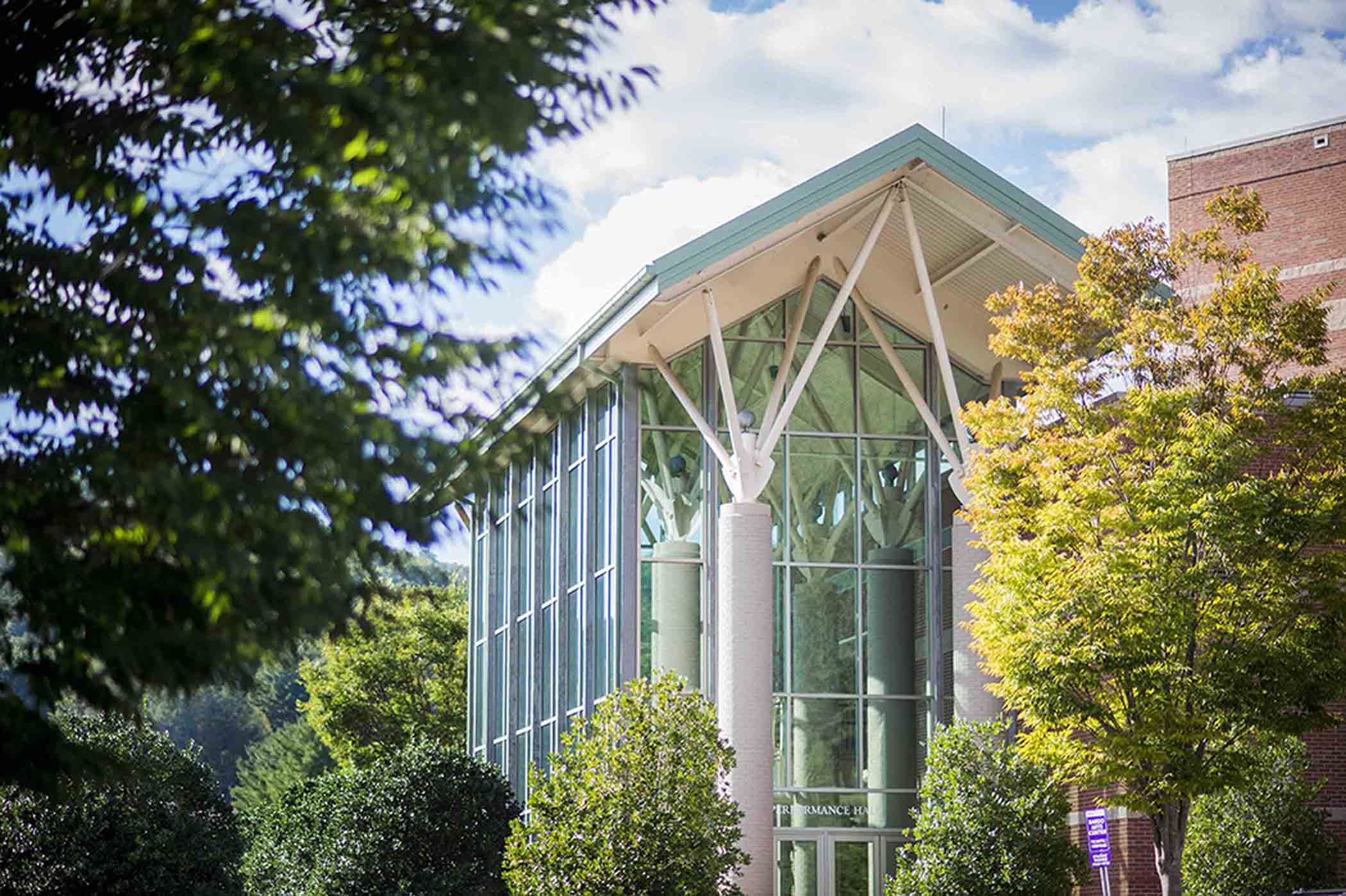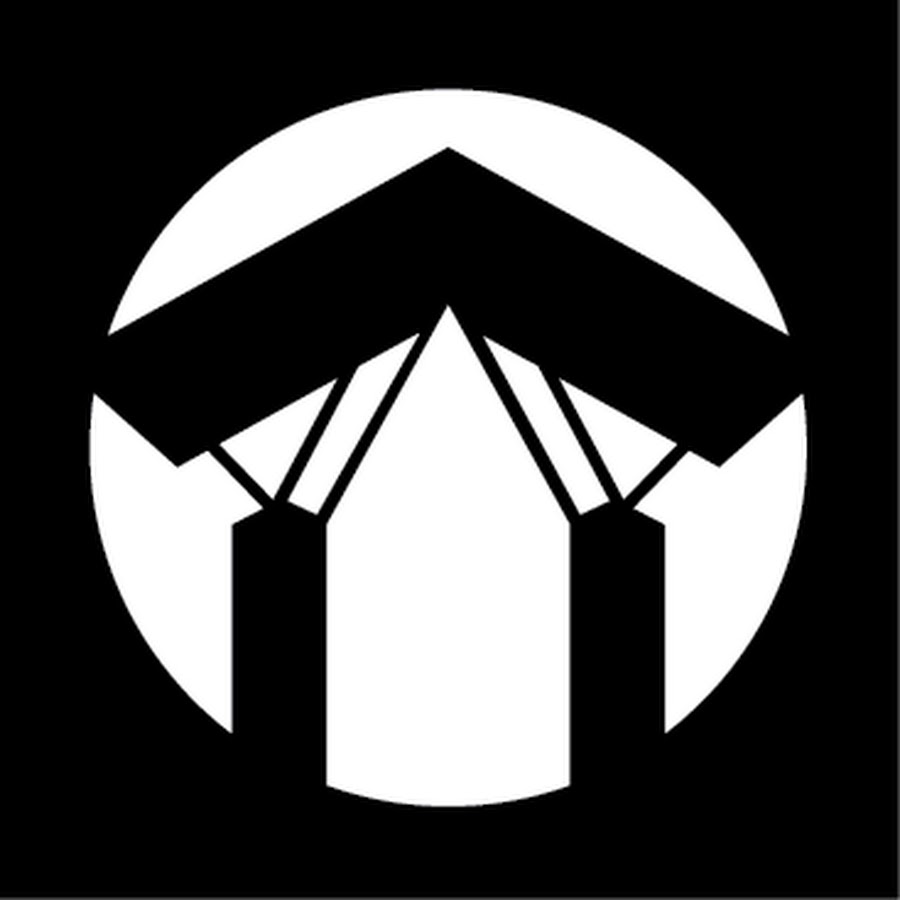- John W. Bardo Fine and Performing Arts Center
- Bardo Blog
- MFA Thesis Exhibition 2021
MFA Thesis Exhibition 2021
Reopening Announcement and Visiting Guidelines
Exhibition: April 13 - May 7, 2021 | View the Interactive 360° Tour
This exhibition showcases work in a variety of media and surveys a range of conceptual themes and creative approaches that characterize the global cultural landscape and contemporary art practice.
Featuring MFA candidates Perry Houlditch, Mo Kessler, lydia see, and Lex Turnbull.
The MFA program from the WCU School of Art & Design is an inter-disciplinary studio art program and creative research environment where ideas are given form. Through close association with a diverse faculty, visiting artists, scholars, and their peers, students develop a contextual and historical awareness of their practice focusing on exploration, creative research, and art making.
Artist Interviews
Premiering on Facebook at 12PM on Each Date Below:
- Thursday, April 15: Perry Houlditch
- Tuesday, April 20: Mo Kessler
- Thursday, April 22: lydia see
- Tuesday, April 27: Lex Turnbull
Watch already premiered artist interviews.
Read individual artist statements and bios below.
Artist Statement: Observation and study of the environment and natural world informs my art work; the imagery I generate is reflective of my mind’s ramblings in this process. I use graphite and watercolor on paper to explore and question the systems and relationships I find. The inter-workings of the soil food web, microbial dynamics, vegetative nutrient intake, weather systems, and water and energy cycles are samples of my curiosity. I am interested in how these natural systems and dynamics can act as models for sustainable creative making and problem solving in my studio practice and life.
Artist Bio: Perry Houlditch was born in the Blue Ridge Mountains of Western North Carolina in 1983. He began formally studying art in 2002, and graduated from the University of North Carolina at Asheville with a Bachelor of Fine Arts in 2007. In 2009, Perry moved to the United Kingdom to study at London’s Atelier of Representational Art. Returning to Asheville, Perry pursued a career as a professional artist and private painting instructor. In 2018 he was accepted into the MFA program at Western North Carolina University where he was able to further develop his studio practice. He is set to graduate in Spring 2021.
Learn more at perryhoulditchstudio.com.
Artist Statement: My research is grounded in Appalachia and the South as a means to explore economic and political systems built on extraction. Operating out of the theory that trauma of land, resources and people erodes our collective sense of place and memory of resistance. The central idea I am exploring through my practice right now is, if a sense of place is central to the formation of memory, how does the trauma of a region affect a collective sense of self and our ability to imagine liberation?Crochet, in particular the rag rug, is at the center of my work. With this stitch, I make connections from where I am, to where I come from and who I come from. From here I question working class visibility, interest, and labor within market driven contemporary art, and the rationale behind the hierarchical lines drawn in both fine art and craft. Under the politics of disposability and extraction, market based value is derived from myths of scarcity and exclusivity; to mark value through attention, care and abundance undermines these myths.
The objects I create rely on used domestic materials and the transformation of material through repetitive labor. I am fascinated by the defiance of “tacky”, resilience embedded in the craft that is born of necessity and the system rebellion that occurs when you make for yourself with what you have. My work is as much a meditation on form and labor as it is a by-product of my desire for radical system change.
Learn more at mokessler.art.
Artist Statement: I work with things, and with people. I make objects, drawings, photographs, and piles of stuff, and make connections with community through creative engagement and by negotiating our collective piles of stuff—housed in family photo albums, archives, special collections, and boxes in attics and closets. I work in the studio and with community examining authorship, agency, and representation within the context of material culture. In photography, fiber, sculpture, and performance, through archival processes and gestures of craft, I reinterpret (mostly found, discarded, or appropriated) domestic, educational, and industrial materials, accumulations, and outdated media to draw connections between memory, ephemerality and technology.
Artist Bio: lydia see (she/they/y'all) works across fields as an artist, photographer, educator, curator, and serial collaborator, and is passionate about the uses of art for social justice + civic engagement. lydia is a white, queer, Ashkenazi Jew, Northern by birth and Appalachian by choice, working and living on unceded Cherokee land, what is now known as Western North Carolina. Working in the studio and with community, lydia examines authorship, agency, and representation within the context of material culture. As founder and director of Engaging Collections, a residency and publication at the intersections of equity + art with libraries, archives, and special collections, co-founder and collaborator of Six Feet Photography and the Cabbage School, and through collaborations and consulting, lydia has had a hand in developing programming, infrastructure, and strategic plans for many organizations and collaboratives.
Learn more at lydiasee.com.
Artist Bio: Lex Turnbull relocated to Western North Carolina from the beloved armpit of Florida, also known as Tallahassee. They hold a BA from Florida State University, and grew up in Southwest Florida. The cinder block homes and various terrain of Florida continue to influence Lex’s work, from materials to concepts. Their work is rooted in how we communicate, navigate, deconstruct, and reconstruct boundaries. The nature of our environments, internal and external, often reveal that these boundaries provide only false notions of safety. For Lex, art is a tool for exploring and exploiting these false notions of safety, with all of their comedy and tragedy.
Learn more at www.lexturnbull.com.
See work from these MFA Candidates on display in the Tracey Morgan Gallery WCU MFA exhibition.
View the Interactive 360° Tour
